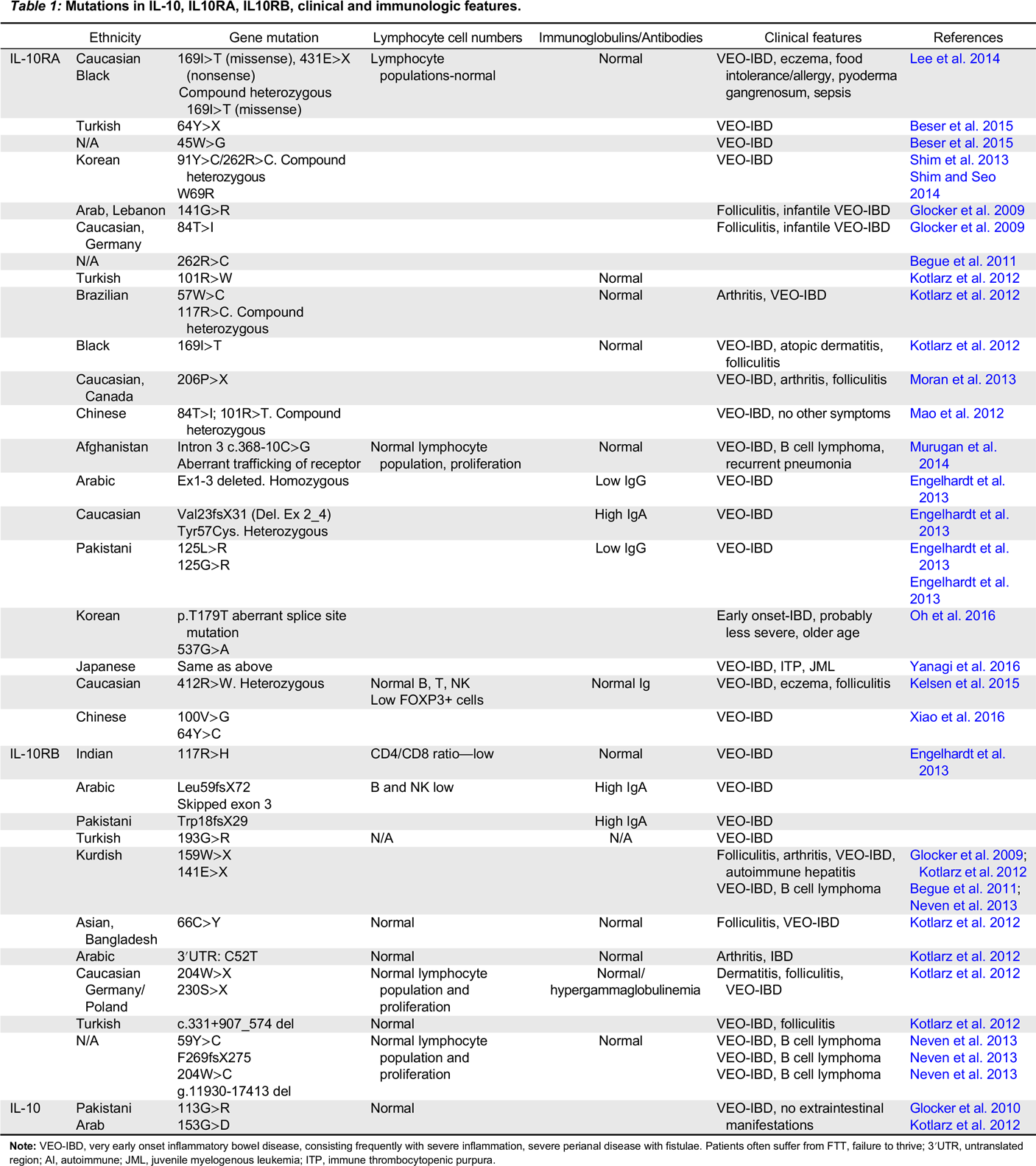A genetic database and clinical findings for immunodeficiency due to mutations in interleukin-10, interleukin-10 receptor A, and interleukin-10 receptor B genes
Abstract
Introduction
Immunologic studies
Clinical features

Note: VEO-IBD, very early onset inflammatory bowel disease, consisting frequently with severe inflammation, severe perianal disease with fistulae. Patients often suffer from FTT, failure to thrive; 3′UTR, untranslated region; AI, autoimmune; JML, juvenile myelogenous leukemia; ITP, immune thrombocytopenic purpura.
Summary
REFERENCES
Information & Authors
Information
Published In

History
Copyright
Authors
Metrics & Citations
Metrics
Other Metrics
Citations
Cite As
Export Citations
If you have the appropriate software installed, you can download article citation data to the citation manager of your choice. Simply select your manager software from the list below and click Download.
There are no citations for this item
View Options
View options
Login options
Check if you access through your login credentials or your institution to get full access on this article.


